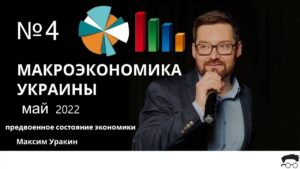
The first two objects for which privatization auctions have been announced since the beginning of the war were the Marilovka and Kobylovolotsk distilleries of the Ukrspyrt State Enterprise in the Ternopil region, the State Property Fund reported on Monday evening.
According to it, auctions for the Kobylovolotsk plant will be held on September 19 with a starting price of UAH 25.2 million, for the Marilovka plant on September 20 at a starting price of UAH 54.3 million.
In total, in September it is planned to hold 8 auctions for the privatization of ready-made alcohol assets, as well as about 150 other objects – from movable and immovable property to non-operating plants, which will be put up before the end of 2022.
“Privatization auctions in September will be held according to new, improved procedures. Thanks to our joint work with people’s deputies and the government, colleagues from Prozorro. Sales, privatization will become an even more convenient tool for business development and will provide additional filling of the state budget in the conditions of martial law “, – the words of the acting are given in the message. head of the State Property Fund Olga Batova.
She recalled that due to legislative changes, the preparation and holding of auctions will take up to two months instead of six, payment will be made before the signing of the sale and purchase agreement to minimize risks, but new owners will receive all permits and licenses automatically.

The mobile operator “Vodafone Ukraine”, which is part of NEQSOL Holding (Azerbaijan), in January-June 2022 reached a revenue figure of UAH 9.916 billion, which is 3% more than in the same period of 2021 (9 .64 billion UAH) .
According to the operator’s financial report, its net profit for the specified period amounted to UAH 663 million (UAH 2.1 billion for the same period last year).
OIBDA exceeded UAH 5.76 billion. OIBDA margin increased by 2.1 p.p. up to 58.1%.
As emphasized in the message of the operator, emergency work on the network and its restoration, assistance to the country and customers, and mass migration of customers abroad have significantly affected the dynamics of key financial indicators.
The growth of part of the financial indicators in the first half of 2022 was achieved due to the successful results of the first two months of the year.
The operator’s capital investments in the first half of the year amounted to UAH 1.276 billion, which is 14% less compared to the same period last year.
“As of today, all elements of the core network are operating normally, Vodafone Ukraine has taken all the necessary steps to quickly switch to a backup scenario. The Vodafone Ukraine team is actively working to restore damage: about 87% of the network is working and this figure is growing “All critical elements of the technical and IT infrastructure have already been diversified. The approximate amount of asset losses is about UAH 806 million,” the company stressed.
Mass migration due to the war also significantly affected the size of the subscriber base – as of the end of July, the operator’s subscriber base amounted to 16.6 million customers, of which 1.76 million were forced to stay outside the country.
In addition, as of the end of July 2022, the company connected free services in the amount of UAH 270 million for 13 million customers in Ukraine. And abroad – in the amount of UAH 596 million for 1.5 million subscribers in 32 countries.
The operator also purchased 10 ambulances for the amount of UAH 23 million.
The volume of humanitarian and direct financial assistance of the company to the country is currently estimated at UAH 250 million.
In 2019, NEQSOL Holding, through Telco Solutions and Investments LLC, controlled by Bakcell, signed an agreement with MTS PJSC on the purchase of its telecommunications business in Ukraine. The deal for the purchase of Vodafone Ukraine was closed at the end of December 2019 with funding from J.P. Morgan and RBI, the price was $734 million, including a deferred payment of about $84 million.
The NEQSOL Holding group of companies, according to the release, has more than 25 years of experience in various industries and countries. Its activities cover oil and gas, telecommunications, construction and other high-tech industries in the UK, USA, Turkey, Azerbaijan, Kazakhstan, UAE, Bangladesh. The group entered the telecommunications industry in the early 2000s. The companies included in it provide mobile communication services, international transit and wholesale Internet sales, leased line services, data center services, etc.
Businessman Nasib Hasanov is the official founder and 100% owner of the NEQSOL Holding group, including Nobel Oil Services (UK) Limited, Nobel Oil E&P (UK) Limited (trade name Nobel Upstream), Bakcell LLC and Norm OJSC.

Bitcoin fell below $20,000 over the weekend and remains below that mark on Monday after US Federal Reserve Chairman Jerome Powell made comments during the annual economic symposium at Jackson Hole on Friday.
The bitcoin exchange rate at 15:00 TC on Monday fell by 0.9% and amounted to $19,812 thousand.
The Fed will continue to raise the key rate until inflation is under control, and this is likely to “cause some pain for households and businesses,” Powell said.
Such “hawkish” statements also had a negative impact on the US stock market. The Dow Jones Industrial Average plunged the most since May on Friday.
The price of bitcoin did not fall below $20K for about a month and rose to $25,199K in mid-August. Since the beginning of the year, the value of the cryptocurrency has collapsed by 57% amid tightening monetary policy in the world, which could cause a recession.
The price of Ethereum, another popular crypto-currency, is down 2.35% on Monday to around $1,449k. Ethereum has dropped 60% since the start of the year.

According to the results of work in 2021, PJSC “Kyiv Shipbuilding and Ship Repair Plant” (KSSZ) reduced its net loss by 46 times, to UAH 2.047 million from UAH 94.073 million.
According to the information, by the extraordinary general meeting of shareholders scheduled for September 30 of the current year, the outstanding loss as of December 31, 2021 amounted to UAH 228.5 million.
The meeting will be held remotely. The start date for shareholders voting on the agenda is September 22, the voting end date is until September 30, 2022
Shareholders will consider a number of issues based on the results of work in 2021, in particular, the report of the board on the results of the financial and economic activities of the company for 2019-2021, the report of the supervisory board for this period, the report and conclusions of the audit commission, and the conclusions of the external audit. On all these issues, it is proposed to recognize the performance as satisfactory and it is planned to approve the annual reports for 2019, 2020 and 2021.
In addition, shareholders intend to consider the distribution of profit and loss for 2019, 2020 and 2021.
The draft decision, which the Interfax-Ukraine agency has at its disposal, plans to distribute the company’s profit in the amount of UAH 4.564 million for 2019 to cover losses from previous periods. The losses of the company in the amount of UAH 94.073 million for 2020 and in the amount of UAH 2.047 million for 2021 shall be covered from the profits of subsequent periods.
The meeting also intends to make changes and additions to the charter by presenting it in a new edition.
Shareholders will also consider personnel issues. Thus, the meeting intends to decide on the termination of the powers of the members of the Supervisory Board and the Revolutionary Commission, electing their new compositions. The board is also planned to be dismissed, liquidating the board as a management body and electing a director of the company.
In addition, shareholders will consider the issue of liquidation of subsidiaries: DP “Diesel”, DP “Shipyard” and DP “Shipfur”.
As reported, KSSZ received a net loss of UAH 94.073 million in 2020 against a net profit of UAH 4.564 million in 2019.
In March 2021, the Department of Enforcement of Decisions of the Department of the State Executive Service of the Ministry of Justice of Ukraine opened enforcement proceedings to foreclose on the property of KSSZ, which is a property guarantor for the obligations of the Finance and Credit Bank (Kyiv) to the National Bank (NBU) for a total of 4, UAH 2 billion
The NBU then noted that this plant, like the Finance and Credit Bank (FiK) itself, was associated with businessman Konstantin Zhevago.
KSSZ manufactures ships of various types, complex metal structures, equipment for the mining and processing industry, repair of diesel engines.
The Economic Court of Kyiv, by its decision of August 21, 2017 No. initiated proceedings on the bankruptcy case of PJSC “KSSZ”.
According to NDU data, for the fourth quarter of 2021, Mulready Ventures Limited (UK) owns 24% of the shares of PJSC, DІ.ER.AY. LLC, Harmonika LLC, Ukrtekhvuglets LLC (all three are Ukraine) – according to 9.8%, the American-Ukrainian joint venture with foreign investments in the form of Finance and Credit Leasing LLC – 9%, for individuals Sergey Kovalenko and Anatoly Rekun – 6.0972% each.
The authorized capital of PJSC is UAH 62.5 million.

European stock indices fall on Monday on growing fears that the tightening of policy by the world’s largest central banks will continue to put pressure on the global economy.
The composite index of the largest enterprises in the region Stoxx Europe 600 as of 12:35 CSK fell by 1% to 421.71 points.
The German DAX index is losing 1.36%, the French CAC 40 – 1.52%, the Italian FTSE MIB – 1%, the Spanish IBEX 35 – 1.15%. UK stock exchanges are closed on Monday (Summer Bank Holiday).
“Today the markets are focusing on the message from Jackson Hole about a ‘coordinated tightening’ of policy. Treasury bond yields are rising and risky assets are getting cheaper,” said Danske Bank experts, quoted by Dow Jones.
Federal Reserve Chairman Jerome Powell, speaking Friday at an economic symposium in Jackson Hole, reaffirmed the US central bank’s determination to continue tightening monetary policy to bring inflation under control.
“We are purposefully moving our policies to a point where they will severely restrict economic activity,” Powell said.
“Higher rates, slower economic growth and a weaker labor market will contain inflation, but will also cause some pain for households and businesses. This is the sad price of reducing inflation. However, failure to restore price stability will mean even more serious pain,” he said.
Representatives of the European Central Bank (ECB) warned at Jackson Hole that the ECB’s monetary policy is likely to remain tight for an extended period of time.
ECB executive board member Isabelle Schnabel said tightening policy would require global central banks to “sacrifice” more in terms of economic consequences than in the past, as the “globalization of inflation” makes it harder for central banks to keep inflation under control, the Financial Times writes.
The head of the Bank of France, Francois Villeroy de Galo, in turn, said that there should be no doubt about the ECB’s readiness to raise key interest rates above the so-called “neutral” level, which does not constrain, but does not limit economic activity.
He noted that rates could reach the level of 1-2% by the end of this year.
Shares of energy and utility companies, as well as chemical producers, fell sharply on Monday amid persistently high gas prices.
The value of shares of French Engie SA and Veolia Environment SA fell by 3.8% and 2.4% respectively, German RWE AG and Bayer AG – by 2.1% and 3%, Italian Enel SpA – by 1.8%, Spanish Iberdrola SA – by 1.1%.
The decline leaders in Germany are shares of Infineon Technologies (-3.9%), Deutsche Post (-2.5%) and HeidelbergCement (-2.3%), in France – Cie de Saint-Gobain (-2.6%) and Kering (-2.5%).
Luxury goods makers LVMH and Hermes lost 2.2% and 1.7%, respectively, on weaker consumer spending forecasts in Europe and expectations of a further slowdown in the Chinese economy.

Ukraine’s GDP in 2022 will decrease by 30%, however, the unblocking of seaports would reduce the economic decline to 22-25%, Olena Bilan, chief economist at Dragon Capital, believes.
The real gross domestic product (GDP) of Ukraine in the first quarter of 2022 fell by 15.1% compared to the first quarter of 2021 after growing by 6.1% in the fourth quarter of last year, the State Statistics Service published such a preliminary estimate on Thursday.
The economy of Ukraine is gradually recovering from the level of the greatest fall in March thanks to the regions where there are no active hostilities, as a result, the decline in May this year (against the same month last year) slowed down to 35-40%, Deputy Governor of the National Bank of Ukraine Serhiy Nikolaychuk said.
The National Bank expects Ukraine’s GDP to fall by at least a third in 2022, Deputy Governor of the NBU Serhiy Nikolaychuk said during the presentation of the report on financial stability.
The National Bank of Ukraine (NBU) estimates Ukraine’s losses from destroyed housing, business and infrastructure due to Russian aggression at 50% of GDP in 2021, or $100 billion, according to a financial stability report published on the central bank’s website on Tuesday.
The real GDP of Ukraine will decrease by more than a third in 2022, inflation accelerated to 20% in the first half of the year, according to bankers surveyed by Interfax-Ukraine.
The deficit of Ukraine’s foreign trade in goods in January-April 2022 fell by almost 97.6% compared to the same period in 2021, to $29.6 million from $1.237 billion, the State Statistics Service reported on Tuesday.
Consumer price growth in Ukraine in May 2022 slowed down to 2.7% from 3.1% in April and 4.5% in March, but exceeded 1.6% in February and 1.3% in January, the State Statistics Service said on Thursday.
The state budget deficit in January-May 2022 exceeded annual deficits of the previous two years, the National Bank of Ukraine (NBU) said in its June macroeconomic and monetary review.
Ukraine’s total state debt in April grew by 0.84% in U.S. dollars to $97.62 billion, in hryvnias – by 0.84% to UAH 2.855 trillion, according to data on the website of the Ministry of Finance.
Economic Monitoring’s Project Manager – PhD in Economics, Maksim Urakin